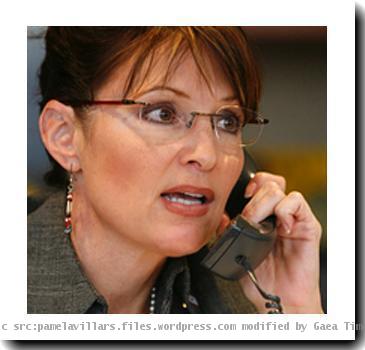Former Gov. Palin’s shadow hangs over Alaska ethics debate
By Becky Bohrer, APSunday, January 31, 2010
Palin’s shadow hangs over Alaska ethics debate
JUNEAU, Alaska — The fallout from Sarah Palin’s hasty retreat as governor is being cleaned up by the man she appointed attorney general in her waning days in office.
Attorney General Dan Sullivan has proposed broad changes to Alaska’s ethics rules that Palin complained helped drive her out. One Sullivan recommendation that might sound familiar: Setting ethical standards for spouses and kids to travel with the governor or lieutenant governor at taxpayer expense.
Another would implement an opinion he issued in August, that the state could pay legal fees executive branch officials rack up fighting ethics complaints, if the official is exonerated by an attorney general, independent investigator or by the state Personnel Board, whose members are appointed by the governor.
Sullivan’s proposals are on track to take effect after a review of public comments unless the legislature passes superseding law. The prospects for that happening — in an election year, with many Alaskans worried about job losses and energy prices — appear dim.
While ethics is an important issue, “It’s not going to be very high on my laundry list of state issues to address,” said Rep. Jay Ramras, R-Fairbanks, whose Judiciary Committee would be where any ethics bills might land.
“I think a lot of these issues … would benefit from the passage of time, and likely are better issues for the (next) Legislature to take up,” said Ramras, who often found himself at odds with Palin. He said he wants to focus his limited committee time on anti-crime measures.
But at least one lawmaker believes any change to the ethics code should come from the Legislature, rather than from a political appointee.
Rep. Max Gruenberg, D-Anchorage, has introduced legislation with some provisions similar to Sullivan’s for travel and legal fee reimbursement. He would like the state to put off implementation of Sullivan’s plan, pending legislative action.
None of Sullivan’s proposals would retroactively benefit Palin, according to the state’s ethics attorney. But they do speak directly to complaints raised during her tumultuous two-and-a-half years in office, and are aimed at clearing up gray areas and, according to Sullivan, discouraging abuse.
There is also a sense that some of this is simply cleaning the slate of all Palin’s issues.
By the time she was named the Republican vice presidential nominee in the summer of 2008, she’d already rocked the political boat at home. She shunned the capital city, burned bridges with the political establishment and had an at-times prickly relationship with lawmakers — a situation that only worsened when she returned to Juneau for the 2009 legislative session.
Her emergence on the national political scene prompted a flood of public records requests, the volume of which state officials hadn’t seen before and are still working to fulfill, and set off a flurry of ethics complaints.
More than 20 complaints were filed against her with all but two, related to travel and a legal defense fund, dismissed, said her personal attorney, Thomas Van Flein.
While the defense fund issue is still pending, the travel complaint, related to Palin charging the state when her kids traveled with her, was settled, with Palin agreeing to reimburse the state for some questionable costs. The investigator’s finding, that there is little in state rules to determine ethical travel standards for the first family, gave rise to Sullivan’s proposal that a family member can tag along at state cost if his or her presence is required for state business or otherwise “benefits the state.”
Palin cited the probes’ financial and psychological toll as key in her decision to resign. Her legal bills have run into the hundreds of thousands. Disclosed costs incurred by the state have neared $370,000.
Van Flein said the ethics law is meant to address and should focus on “open and flagrant ethical lapses in the state and corruption” — not on what he considers frivolous complaints, such as one dismissed against Palin that accused her of promoting her husband’s sponsor in a snowmobile race by wearing a company logo jacket to the start.
At least two legislators, including one Democrat, are supporting measures to bar those lodging ethics complaints from taking their charges public. If they do, their complaints would be dismissed. The lawmakers said the proposal would reduce the frivolous or partisan complaints that they say besieged Palin.
“You want to make political points against Sarah Palin? Hire a hall,” said Rep. Mike Doogan, an Anchorage Democrat and former journalist. “Don’t make the state of Alaska your soapbox. … This is really about what’s right here, for anybody who finds themselves in that situation.”
Anchorage resident Andree McLeod, who’s filed numerous complaints against Palin, believes each had merit.
“This is the only avenue I have to address the misconduct of government officials,” she said, adding that lawmakers are “totally out of line” if they believe any of her complaints were politically motivated.
Tags: Alaska, Anchorage, Corporate Ethics, Juneau, North America, Political Corruption, Political Ethics, Political Issues, Sarah palin, United States



